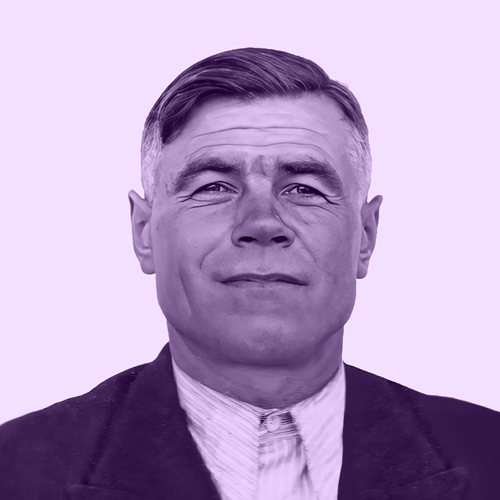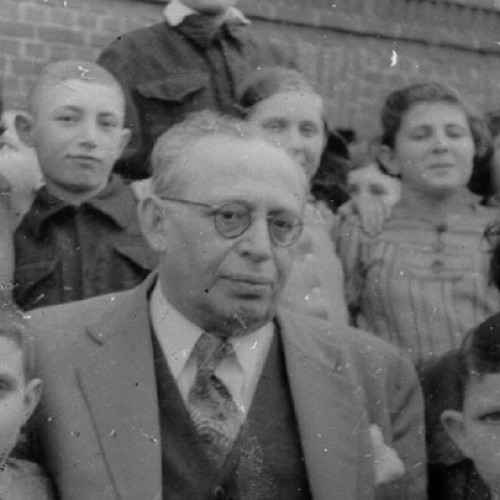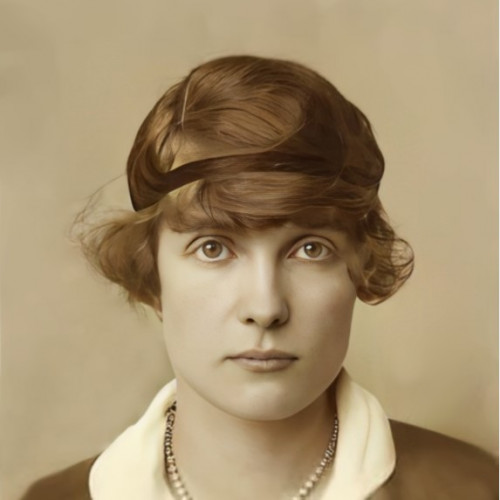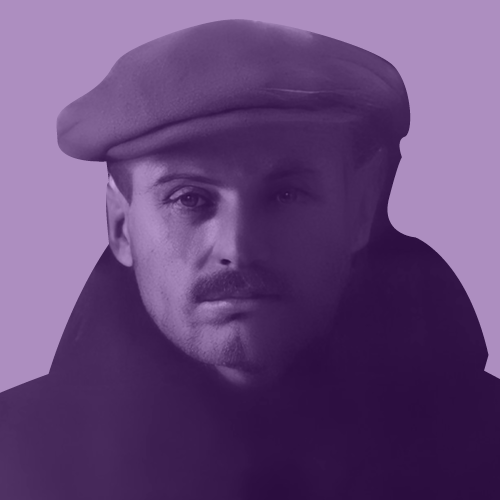Piotr Parfeniuk - Instytut Pileckiego

Although his given name was Petro, Parfeniuk used the name Piotr for the majority of his long life. Before the outbreak of the war, he met his future wife, Stanisława, from the Polish Czerwinek family.
In the summer of 1943, upon realizing the danger facing his Polish neighbors, he decided to take action. According to Jadwiga Sławińska’s account, he refused to be a passive witness to the unfolding events:
“on the Sunday morning of 11 July, Petro Parfeniuk paid us a visit and told us not to go to church, as it could come under attack. Alka [Jadwiga’s sister] replied, in her warm, low voice: ‘I am ready to die’, and went to the church. She never came back.”
On that day, the people gathered at the church in Kisielin for Holy Mass were attacked by members of the Ukrainian Insurgent Army (faction of the Organization of Ukrainian Nationalists). Around 90 people died. Those who fled to the first floor of the presbytery managed to defend themselves by throwing bricks at the attackers. The Banderites also murdered people outside the church, within the area of the village. Piotr saved a young Polish woman from being shot – he lied that she was Ukrainian. He was among the first people who got to the premises of the church after the attack and helped carry the wounded Włodzimierz Dębski to the home of his aunt and uncle, Liubov and Anton Parfenyuk. He also escorted his wife’s relatives and the family of Piotr Sławiński out of Kisielin. He continued to provide assistance in the following weeks. According to the account of Teresa Siedlicka, who lived in Zapust near Kisielin, her neighbor by the name of Parfenyuk – most likely Piotr – warned her in September about the attack planned by the Ukrainian nationalists. The Banderites’ revenge for the aid given to Poles was horrific – Piotr’s parents and his brother Pavlo, along with his family, were all murdered. Piotr decided to flee and settled with his wife in the Zamość region, where he lived for the rest of his life. Following his death in 1993, he was interred at the cemetery in Zamość.
“The remaining Poles from Kisielin [now Kysylyn] disappeared in secret or individually. Some families were escorted by Ukrainians. Among those who helped the most were [...] Petro Parfenyuk, who saved the Czerwineks and Piotr Sławiński’s family [...].”
Włodzimierz Sławosz Dębski, W kręgu kościoła kisielińskiego, czyli Wołyniacy z parafii Kisielin, Lublin 1994
Photo: Piotr Parfeniuk the 1960s (Private archives of Mirosława Hejne)
See also
- Abraham Silberschein (1881—1951)

awarded
Abraham Silberschein (1881—1951)
He was a member of the Ładoś Group, which issued illegal Latin American passports to European Jews. His role in the group was to provide lists and photographs of people who were to receive the passports.
- Józsefné Margit Károlyi

awarded
Józsefné Margit Károlyi
(1892–1964)From the first days of the Second World War, many representatives of the Hungarian elite were involved in helping the Polish refugees in Hungary. One of them was Countess Margit Károlyi Józsefné.
- Semen Biliczuk

awarded
Semen Biliczuk
(1890–1944)Jews, Ukrainians, Poles – the population of the prewar village of Kisielin [now Kysylyn] [now Kysylyn] was characterized by a vivid mosaic of ethnic and religious groups. The leader of such a community had to be able to find a common ground with everyone.


